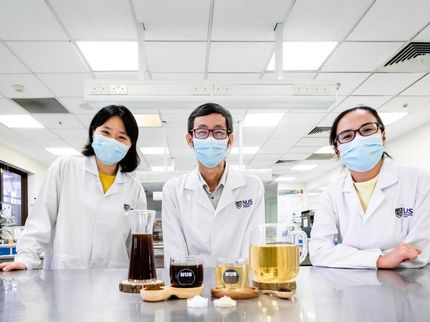Even the thought of coffee provides for an energy kick in the morning
Advertisement
Before the first cup of coffee, many people are still not really approachable in the morning. But already the smell of the freshly brewed Energy supplier awakens the senses and lets the brain really go up. But why is that? Scientists at Monash University in Melbourne and the University of Toronto have now discovered that even the mere thought of coffee can lead to an intense placebo effect among frahling lovers without actually consuming the hot drink.

Photo by SnapbyThree MY on Unsplash
For many, every day begins with a hot cup of coffee to activate the brain for the working day. The morning coffee promotes interpersonal encounters, provides for the physical well-being and represents an unavoidable ritual for some connoisseurs.
But can coffee fans achieve the same positive effects as morning milk coffee by simply reacting to stimuli that remind them of coffee - such as smells, visual impressions and sounds?
A recent international study by Monash University and the University of Toronto has shown that the placebo effect of coffee can make regular coffee drinkers feel stimulated, ambitious and concentrated without actually consuming the drink.
Dr. Eugene Chan, lecturer in marketing at Monash Business School, and Sam Maglio, professor of marketing and psychology at the University of Toronto, have investigated the relationship between coffee and the state of arousal of the central nervous system in order to find out whether the perception of stimuli can bring the same cognitive benefits as a caffeine kick.
"As long as people associate coffee with a state of excitement, no matter where this association comes from, the perception of sensory stimuli reminiscent of coffee can stimulate the central nervous system without consuming any form of caffeine," says Dr. Chan.
"The mere scent of coffee then evokes the psychoactive, stimulating effects of the hot drink. This is because the brains of regular coffee consumers are conditioned to react to coffee in a certain way, just as the famous phenomenon of the Pavlovian dog describes it.
Thus, even walking past our favourite café, the smell of coffee grounds or the perception of stimuli in the form of coffee advertisements can trigger the chemical receptors in our bodies to such an extent that we can achieve the same states of excitement without actually consuming coffee".
The researchers exposed 871 study participants from Western and Eastern cultures to coffee and tea-related stimuli in four different experiments, which made them think of the drink without actually consuming it.
In an experiment, the participants were asked to develop advertising slogans for coffee or tea. In another, they should invent reports about the health benefits of coffee or tea consumption. Throughout the study, the scientists monitored the excitation levels and heart rates of the participants.
The study focused on a psychological effect called 'mental abstraction'. Mental abstraction determines how people think and process information, and whether they concentrate on smaller details or on the overall picture.
The results of the study show that the perception of coffee stimuli, i.e. images, smells and noises that make you think of coffee, can increase people's attention, energy and heart rate and improve their cognitive performance.
The cognitive-changing effect of coffee was more widespread among participants from Western countries, where coffee is more popular than in Eastern countries and is associated with energy, concentration and ambition. Coffee is also said to have a greater stimulating effect than tea.
"Fascinating conclusions can be drawn from our research, which shows that it is not so much physiological aspects as psychological associations that can change our cognitive patterns," says Dr Chan.
"This study may even help explain how drinking decaffeinated coffee can lead to faster response times in solving tasks. Perhaps the mental link between coffee and state of arousal is so strong that it can cause cognitive changes, even if there was no caffeine intake at all physiologically.
This contributes to the growing amount of literature that documents that the food we eat and the drinks we drink do not merely nourish or pleasure us - their mere perception or memory of them influences how we think."
This study was published in April 2019 in the journal Consciousness and Cognition.
Note: This article has been translated using a computer system without human intervention. LUMITOS offers these automatic translations to present a wider range of current news. Since this article has been translated with automatic translation, it is possible that it contains errors in vocabulary, syntax or grammar. The original article in German can be found here.






























































